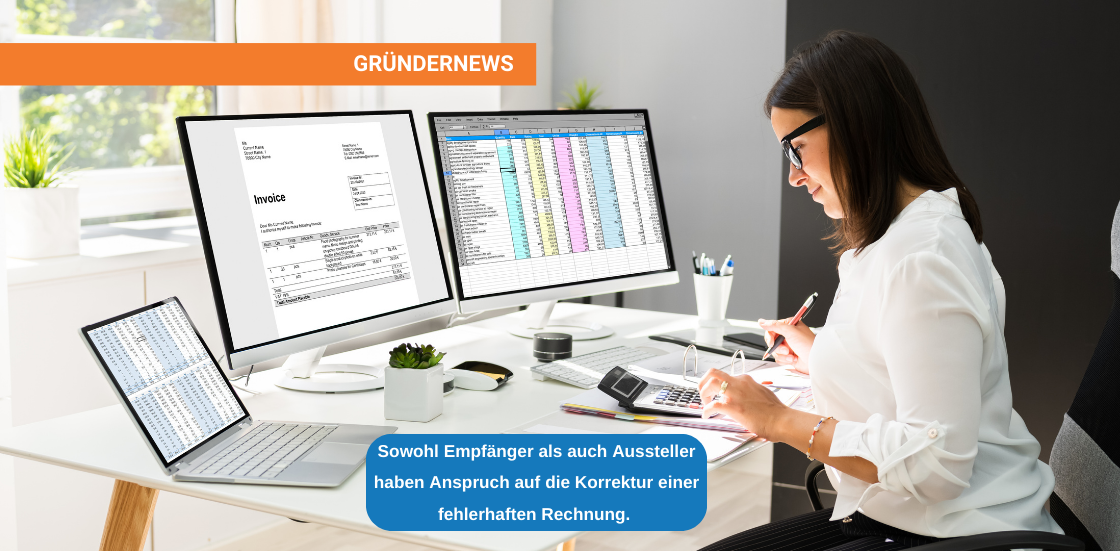In the hustle and bustle of daily business, mistakes in invoices can occasionally occur. What to do in such a situation?
Outgoing invoices may exhibit errors in various areas, such as:
- Simple calculation errors
- Incorrect quantity listing
- Wrong invoice date
- Incorrect description of goods or services
- Use of the wrong VAT rate
- Incomplete address...
Options for correction
The following options are available for correction
Both the recipients and issuers of an invoice have the right to correct the invoice document, as only an invoice containing all legally required information, for example, enables the deduction of input tax.
If the error on the invoice is identified within the company before entry into the accounting system, it is sufficient to make the necessary changes manually on the original invoice (do not forget to note the amendment date and provide a signature).
If the erroneous invoice has already been received by the recipients, a second document can be sent for correction, which must include the following information: name and address of the invoice issuer, clear identification details of the erroneous invoice (e.g., invoice number and issuance date), and specification and correction of the error. Both parties should keep this document along with the original invoice.
Later corrections costly
If the erroneous invoice has already been booked, correction can only occur through cancellation and subsequent re-invoicing.
However, what happens if an erroneous invoice is contested and not recognized, for instance, during a tax audit?
The issue here is that in such a case, the input tax deduction will not be acknowledged, and a refund to the tax authorities will be required.
Under certain conditions, erroneous invoices can be retrospectively corrected. The contested document is only considered an invoice and thus eligible for correction if it includes information about the invoice issuer, the service recipient, the service description, the consideration, and the separately stated VAT (see VAT Act, § 14).
For example, the Federal Fiscal Court clarified in a ruling dated March 12, 2020, case no. V R 48/17, that a broadly formulated service description ("product sales") is insufficient for recognizing a document as an invoice. "An accounting document is not an invoice and, therefore, cannot be retrospectively corrected with the consequence of a precondition for input tax deduction if, due to broadly formulated information (here, 'product sales'), it is not possible to clearly and easily verify the invoiced service."



